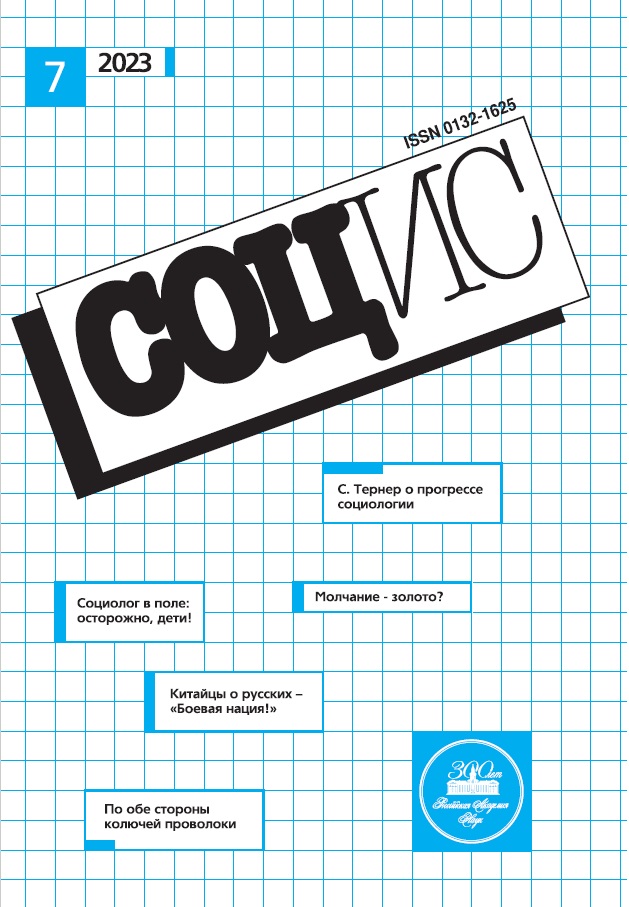Dynamics of Reproductive Attitudes of Adult Fertile Women in St. Petersburg (2011–2021)
- 作者: Argunova E.V.1
-
隶属关系:
- Independent Researcher
- 期: 编号 7 (2023)
- 页面: 31-39
- 栏目: Articles
- URL: https://cijournal.ru/0132-1625/article/view/661726
- DOI: https://doi.org/10.31857/S013216250022671-1
- ID: 661726
如何引用文章
详细
The article deals with the 2011- 2021dynamics of the reproductive attitudes of adult fertile women living in St.-Petersburg, including 3 preferred numbers of children measured (ideal, desired and expected numbers). The survey results based on telephone interviews with this group’s representatives showed the effects of the information influence as an instrument of public demographic policy over the period. On the one hand, positive effect is stated: the average expected number of children has increased. However, this happened because of the contribution of women aged 30-44. The main conclusions present also negative trends: an increase in percentage of women focused on childlessness, a deterioration in attitudes towards marriage registration, a continuing increase in the average age which St.-Petersburg women believe is the best for childbearing (both the first and the last). Problems with having more children, according to women’s reviews, were ranked. The survey shows that the stimulating effect of social support to families with children (maternity capital, etc.) remains limited. The women’s self-evaluation shows a deteriorating trend in their reproductive health.
参考
- Андреев Е.М., Бондарская Г.А. Можно ли использовать данные об ожидаемом числе детей в прогнозе численности населения // Вопросы статистики. 2000. №11. С. 56–62.
- Антонов А.И., Грудина Т.Н. Снижение социальных установок на число детей в российской семье (по данным социолого-демографических исследований «Москва-1976», «Россия-2000» и «Россия-2014») // Экономические стратегии. 2015. №5-6. С. 80–87.
- Антонов А.И., Медков В.М. Социология семьи. М.: МГУ: МУБУ («Братья Карич»), 1996.
- Аргунова Е.В., Тимофеева М.А. Репродуктивные установки совершеннолетних петербурженок // Современное экономическое и социальное развитие. Вып. XVI. Сб. научных трудов. СПб.: ИНИР, 2012-2013. С. 434–458.
- Архангельский В.Н. Детерминация репродуктивного поведения: методологические вопросы исследования и учет в демографической политике // Парадигмы и модели демографического развития. Сб. ст. XII Уральск. дем. форума: в 2-х т. Т. I. Екатеринбург: ИЭ УрО РАН, 2021. С. 179–195.
- Архангельский В.Н. Репродуктивное и брачное поведение // Социологические исследования. 2013. №2. С. 129–136.
- Борисов В.А. Демография. М.: NOTABENE, 1999.
- Малева Т.М., Третьякова Е.А., Макаренцева А.О. Пронаталистская демографическая политика глазами населения: десять лет спустя // Экономическая политика. 2017. №12(6). С.124–147. doi: 10.18288/1994–5124.
- Медков В.М. Репродуктивное поведение и социальная мобильность: ценностно-ориентационный аспект // Антонов А.И., Медков В.М., Архангельский В.Н. Демографические процессы в России XXI века. М.: Грааль, 2002. С. 61–92.
- Руднева О.С., Соколов А.А. Предпосылки эволюции рождаемости и репродуктивного поведения: мировой и российский опыт // Народонаселение. 2020. Т. 23. № 4. С. 140–152. doi: 10.19181/population.2020.23.4.13.
- Синельников А.Б. Трансформация брака и рождаемость в России // Народонаселение. 2019. Т. 22. № 2. С. 26–39.
补充文件









